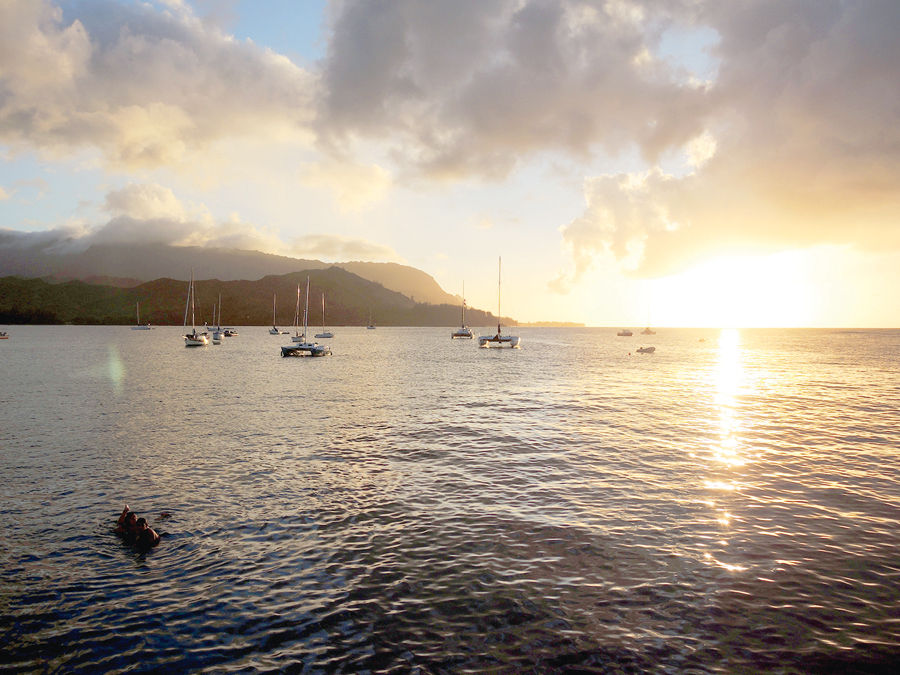LIHUE — A pair of scientists who over the last two decades have self-funded numerous studies of Hanalei Bay’s coral reef say the North Shore destination appears to have what it takes to withstand new and persistent threats to the
LIHUE — A pair of scientists who over the last two decades have self-funded numerous studies of Hanalei Bay’s coral reef say the North Shore destination appears to have what it takes to withstand new and persistent threats to the coastal ecosystem.
“For now it looks like this reef has an incredible resiliency and ability to rebound from storms and other disturbances,” said Eric Brown, Kalaupapa National Historical Park’s marine ecologist.
Brown, along with University of Hawaii fisheries ecologist Alan Friedlander, completed a four-day quantitative fish and reef survey over Memorial Day weekend based on 20 test stations Friedlander established in 1992. It is the most recent survey the duo has conducted in Hanalei since they were last at the bay in 2012.
Specifically, Brown and Friedlander examined things like the state of the coral reef and algae in relation to fish species diversity and population size.
Long-term studies on coral reef systems are rare. Brown said the Hanalei surveys he and Friedlander conduct — “an out-of-pocket passion project” — are geared at creating a repository of consistent data so that changes in the reef and fish populations can be compared over time.
“We’re very interested in seeing how things shift,” Brown said. “From a long-term perspective, no one is really doing that systematically the way Alan and I are doing it.”
In addition to the fish and reef survey, Brown last month conducted a coral larval recruitment study. The study, he said, helps scientists ascertain how well the reef might be able to rejuvenate itself if it were to be severely damaged by a human or environmental disturbance.
“Hanalei has got world class larval settlement,” he said. “In my studies around the globe and here in Hawaii, we’ve never seen larval settlements rates like we do in Hanalei, which is great news. It’s exciting.”
“The fact that Hanalei appears to be a very robust system is very important,” Brown continued. “Will it continue to be robust? It’s hard to say. But the fact that over the last 20 years it’s been resilient in the face of what’s coming in from the Hanalei River and tourism and climate change and bleaching and reports of coral disease — that’s a good sign.”
•••
Brittany Lyte, enviromental reporter, can be reached at 245-0441.


